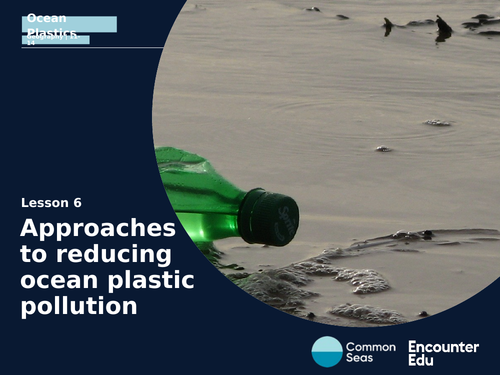









Plastic oceans: can we reduce ocean plastic waste? is a Key Stage 3 (KS3) lesson. Experts agree on the need for urgent action to tackle the issue of marine plastic pollution but disagree on the what methods should be prioritised. Students will look at two main schools of thought: ‘turn off the taps’, stopping plastic from entering the ocean by reducing plastic pollution, limiting single-use plastic use, improving waste management, and introducing alternative products; and ‘bail out the bath’, removing plastic waste from the ocean and beaches. Students engage in a silent debate followed by a group discussion to focus on what they believe is the most effective solution.
This is a single lesson from Ocean Plastic Geography. Ocean Plastics Geography is a Key Stage 3 (KS3) resource. The lessons address the issue of marine plastic pollution, the harm caused by plastics to the environment and communities, how we deal with all the waste, ending with a debate on approaches to reducing ocean plastic pollution. Fieldwork templates for investigating plastics in the local area are included as well as a wealth of case studies exploring both the human and physical elements of plastic pollution.
Get the whole unit’s resources here:https://encounteredu.com/teachers/units/ocean-plastics
Something went wrong, please try again later.
This resource hasn't been reviewed yet
To ensure quality for our reviews, only customers who have downloaded this resource can review it
Report this resourceto let us know if it violates our terms and conditions.
Our customer service team will review your report and will be in touch.
